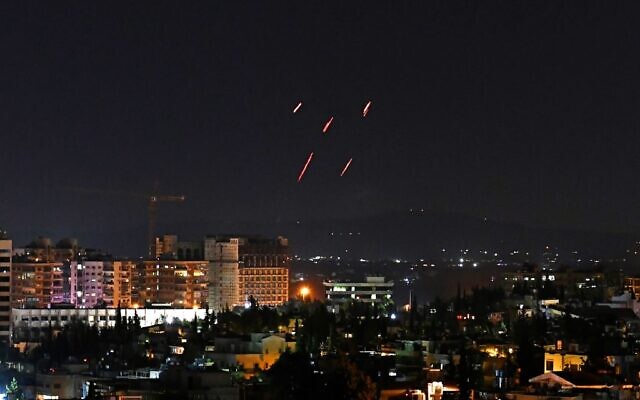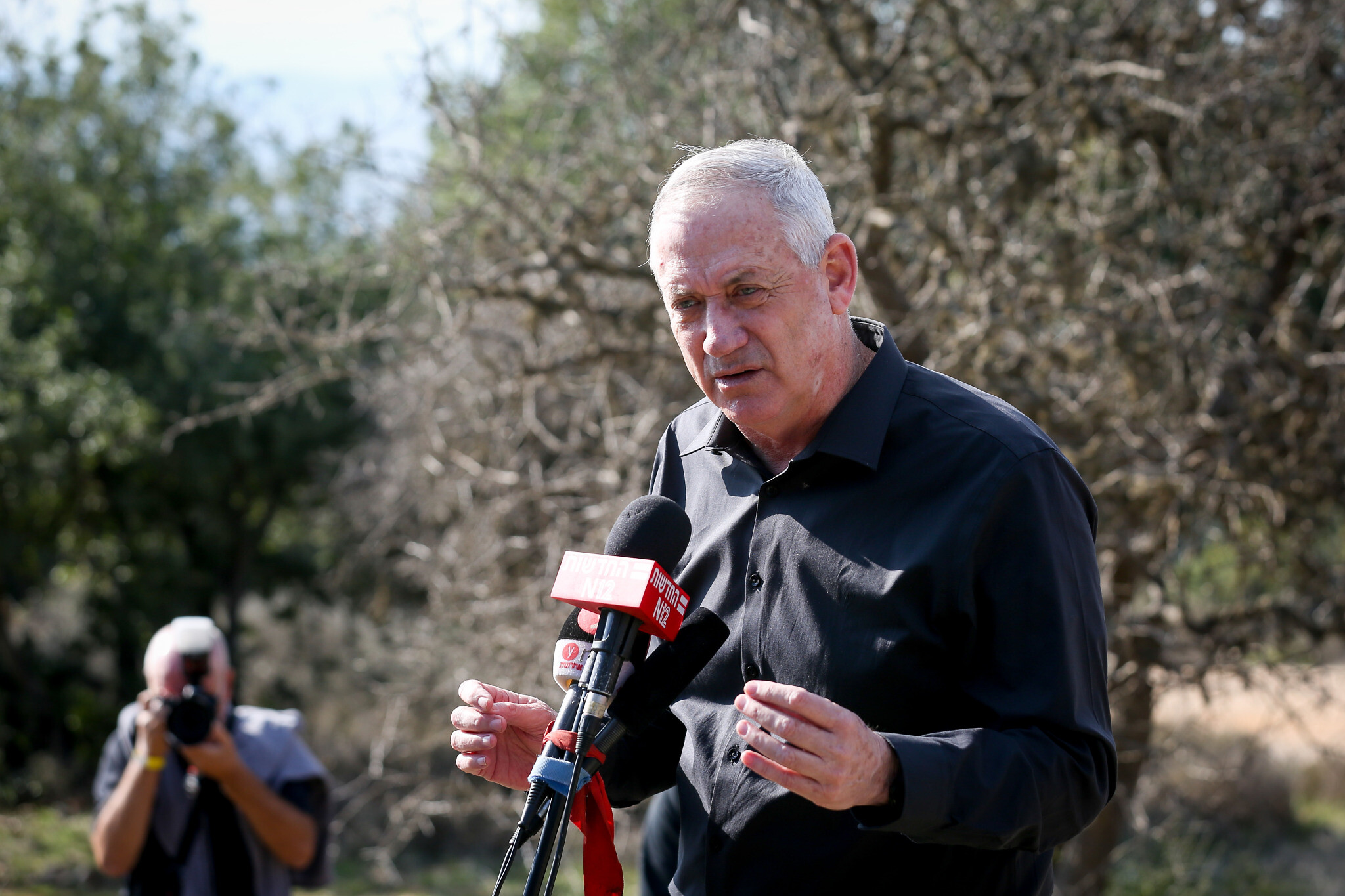Israeli military claims credit for attack immediately, says it’s in response to explosives placed on border; Syrian media says strike is near Damascus, 3 soldiers killed

The Israel Defense Forces attacked Iranian and Syrian targets in Syria early Wednesday morning in response to explosives troops uncovered on Israel’s border with Syria on Tuesday.
“IDF warplanes attacked military targets belonging to the Iranian Quds Force and the Syrian army tonight in Syria. The attack damaged warehouses, command posts and military complexes, and batteries of surface-to-air missiles,” the IDF said in a statement.
“The attack was carried out in response to the placement of explosive charges next to the border fence between Syrian and Israeli territory by a Syrian squad acting under Iranian instruction,” the statement said.
Syrian state media said three soldiers were killed in the attack, and one injured.
On Tuesday, the Israel Defense Forces uncovered and disarmed a number of explosive devices that had been planted inside Israeli-controlled territory in the southern Golan Heights, near the Syrian border.
Though Iranian proxies were suspected of being behind the attempted attack, Defense Minister Benny Gantz and the military said following the discovery that they held Syria responsible for the incident.
The explosives were planted in a buffer zone along the border where Israel once maintained a clinic for treating Syrian civilians under a humanitarian program known as “Operation Good Neighbor,” which is now used for patrols. The area is under Israeli control but on the Syrian side of the security fence, an area between the United Nations-recognized “Alpha” and “Bravo” ceasefire lines.
The IDF has launched hundreds of strikes in Syria since the start of the civil war in 2011, but rarely acknowledges the attacks.
The military explicitly claiming responsibility for the attack on Iranian forces on Wednesday immediately after it took place, and providing details about the targets, was highly irregular.

In August, the IDF said it conducted a series of airstrikes on Syrian military targets in response to an attempted attack on the border in the Golan Heights, but did not mention Iranian forces.
In October, Gantz seemed to hint that Israel was behind a strike on a Syrian position near the Golan Heights border, indicating it was a move against Iranian entrenchment in the area.
The IDF did not specify where Wednesday’s airstrikes took place, but shortly before the army released its statement, Syrian state media reported attacks in the area of the capital of Damascus.
The SANA state news agency said Syrian air defenses intercepted “Israeli aggression” in the skies over Damascus. Syrian war analysts generally dismiss the military’s regular claims of interceptions as false, empty boasts.
Israel in the past has targeted government troops, allied Iranian forces, and fighters from the Lebanese Shiite terror group, Hezbollah in Syria.
It rarely confirms details of its operations in the country, but says Iran’s presence in support of President Bashar Assad and Hezbollah is a threat and that it will continue its strikes.
Last month, the IDF completed its premier exercise of the year, a large-scale simulation of war in the north against Hezbollah and other Iranian proxies, and of a smaller conflict in the Gaza Strip.
The northern border has been tense in recent months, following as-yet unfulfilled threats of retaliation by the Hezbollah, after one of the terror group’s fighters was killed in Syria in an airstrike attributed to Israel in July.
As reported by The Times of Israel
